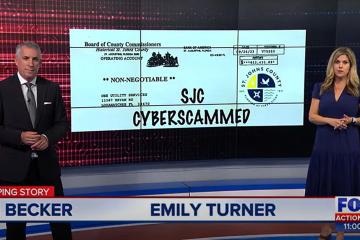
Did you know that 60% of small businesses fold within six months after a major cyberattack? Regular IT check-ups could prevent that. These audits might sound like just another task on your to-do list, but they are incredibly important for your business. Just like you visit the doctor for a health check-up, your IT systems need regular attention to stay in good shape. Ignoring IT maintenance can lead to serious problems down the line.
Imagine a small online retail business, ShopEase, regularly updates its software and conducts routine security checks. One day, a major vulnerability is discovered in the widely-used software they employ. Because of their regular maintenance schedule, ShopEase's IT team quickly applies the necessary updates and patches. Meanwhile, their competitor, who neglected such upkeep, faces a severe data breach that exposes customer information. This breach results in a loss of customer trust and hefty fines. ShopEase avoids these issues, protecting its customers' data and maintaining a secure, trustworthy reputation, ultimately proving that regular IT maintenance is vital for security.
Below, we’ll dive deeper into this topic and explain why regular IT check-ups are essential for your business’s success.
Identify and Fix Vulnerabilities
Detect Security Weaknesses - One of the main goals of IT systems evaluations is to detect security weaknesses. Cyber threats are always evolving, and new vulnerabilities can emerge at any time. Regular scans and assessments help identify these weak spots before attackers can exploit them. Skipping this step leaves your business at risk of data breaches and other cyber attacks. By handling these security issues early, you can keep your guard up and protect your sensitive information. Tools like CVSS (Common Vulnerability Scoring System) can help you quantify and rank vulnerabilities, enabling you to focus on the most critical issues first.
Update Outdated Software - Outdated software is a common source of security problems. Imagine running a state-of-the-art security system with locks from the '80s—it just doesn’t work! Dive into an inventory of all your software versions and put in place a routine check-up schedule. Automated patch management tools can be your best friend here, ensuring timely updates. Don’t forget to test these updates in a controlled environment first to avoid compatibility issues.
Patch Known Security Holes - Once you find vulnerabilities and update software, the next step is to patch known security holes. When software updates aren’t enough, you need specific fixes for identified problems. With a well-documented patch management policy, make sure to apply these patches right away. This is like fixing the cracks in your armor before heading into battle—it’s essential and life-saving.
Boost System Performance and Reliability
Optimize Network Speed - Having a slow network can be a real bummer for everyone in the office. It affects productivity and can even lead to lost business opportunities. During IT check-ups, one of the things we do is optimize network speed. This involves updating network configurations, upgrading hardware if needed, and removing any bottlenecks that might be slowing things down. A faster network helps your team be more efficient and can improve overall satisfaction with your IT setup.
Remove Unnecessary Files and Software - Over time, your systems can get cluttered with unnecessary files and software. These may include outdated programs, temporary files, and other digital debris. Removing these items can free up valuable space and resources, making your system run smoother. This process also involves uninstalling bloatware that may have been pre-installed on your machines.
Ensure Hardware Efficiency - Hardware efficiency is just as important as software updates. Regular IT check-ups include inspecting physical components like servers, computers, and network devices. We check for signs of wear and tear, ensure that cooling systems are working correctly, and verify that everything is running at peak efficiency. Sometimes, simple adjustments or maintenance tasks can extend the life of your hardware and keep it operating smoothly. Efficient hardware means fewer disruptions and a more reliable IT infrastructure.
Enhance Data Security and Compliance
Protect Sensitive Information - One of the biggest challenges businesses face is protecting sensitive information. This includes customer data, financial records, and internal documents. IT systems evaluations help in identifying and implementing the best practices to safeguard this information. Encryption, secure access controls, and regular auditing are some of the best things you can do to ensure your data remains secure.
Ensure Regulatory Compliance - Regulatory compliance isn't just a headache; it's a critical business necessity, especially in sectors with strict data protection laws. IT audits ensure your systems aren’t just compliant, they’re airtight. They entail taking a look at your processes and policies to ensure they meet standards like GDPR and HIPAA. Staying on the right side of the law not only helps you sidestep fines and legal woes but also lets you sleep better at night!
Implement Strong Backup Solutions - Data loss can be catastrophic for any business. So, having strong backup solutions is a vital part of regular IT maintenance. This involves setting up automated backup systems that store your data in secure locations. The testing of these backups ensures they’re reliable and can be restored when needed. A strong backup strategy helps you worry less about data loss, allowing you to quickly get back on your feet when you lose some data.
Save Costs in the Long Run
Prevent Expensive Repairs - One of the less-talked-about boons of regular IT evaluations is the prevention of pricey repairs. Identifying and fixing small issues before they become big problems can save you a lot of money. Routine maintenance helps catch hardware issues, software glitches, and security vulnerabilities early. By addressing these problems promptly, you avoid costly downtime and repair bills. This proactive approach keeps your IT budget in check and reduces unexpected expenses.
Extend System Lifespan - Like a well-oiled machine, your IT equipment runs smoother and lasts longer with regular upkeep. During IT check-ups, we clean hardware components, update software, and ensure everything is running efficiently. This reduces wear and tear, helping you get the most out of your investment. Extending the lifespan of your equipment means you won't have to replace it as frequently, saving money in the long term.
Reduce Downtime and Improve Productivity - Downtime can throw a colossal wrench into your business gears. IT audits help reduce the chances of unexpected system failures. By keeping your systems in top shape, we ensure your team can work without interruptions. Improved uptime translates to higher productivity and better service for your clients. When your IT infrastructure runs smoothly, your business can focus on what it does best, without worrying about technical issues.
Conclusion
Regular IT check-ups help identify and fix vulnerabilities, boost system performance, enhance data security, ensure compliance, and save costs. By working out security weaknesses, keeping software up to date, optimizing network speed, and making sure hardware runs like a well-oiled machine, businesses can protect sensitive information and sidestep any legal minefields.
Consistent IT maintenance is your best defense against expensive repairs, stretching the lifespan of your equipment, and reducing productivity-killing downtimes. Investing in IT audits is the smart play, as it helps businesses maintain a sturdy, efficient, and secure IT environment, supporting long-term growth and success.
Ready to give your business the IT check-up it needs? Contact The Scarlett Group today for a free IT system audit and learn how our managed IT services can help you maintain a secure and efficient IT environment.



